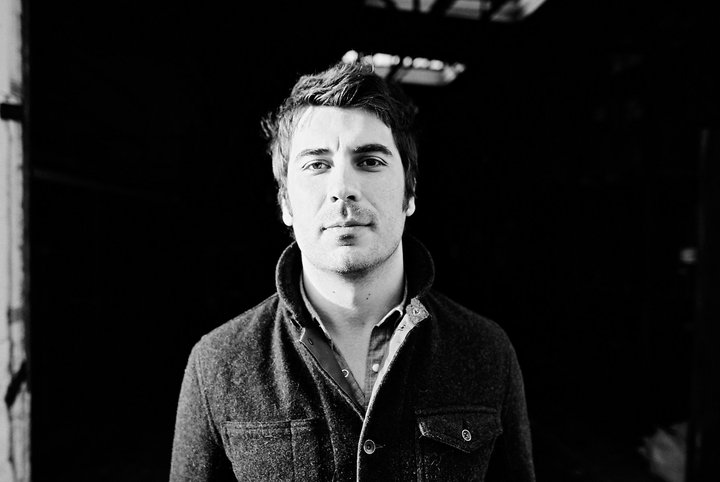Armand Margjeka: Firing a shot across the cultural bow…The Heart’s Every Yearning
On Margo Margo, Armand Margjeka crafts a thoughtful gem of persuasive pleas, bittersweet adieus, and heart tugging affirmations of enduring affection
By David McGee
MARGO MARGO
Armand MargjekaBorn and raised in a remote Albanian village, Armand Margjeka’s life was altered forever when someone sneaked a mixtape of songs by America’s rock ‘n’ roll pioneers—Elvis, Fats, the Killer, Little Richard—into his young hands. He began learning English by listening to their songs. By the time he moved to the States as a 17-year-old exchange student and took a job on a Long Island farm after graduation (he now resides in Birmingham, AL), he had also learned other things from the music—based on his original songs on his self-released Margo Margo (which follows two early digital EPs and a self-titled album) he’s also learned a lot about the complexities of this crazy little thing called love. Singing in a voice somewhere between the croak of Leonard Cohen and the beguiling whisperings of Nick Drake; backed by a basic acoustic/electric band supplemented by pedal steel, banjo, mandolin, violins, trombone and contrabass; and some mesmerizing, ruminative arrangements that have a curious lift, a ray of sunshine, elevating their solemn, evocative tones into a place where hope abides, Margjeka has crafted a thoughtful gem of persuasive pleas, bittersweet adieus, and heart tugging affirmations of enduring affection and commitment. The plainspoken eloquence of Margjeka’s lyrics; the honest expression of his soul’s longings and desires in his plainspoken singing voice; and the plaintive beauty of the music around all this together produce a striking work of top drawer roots music art.
There are moments here that simply stop you in your tracks. One such exquisite example occurs in the album’s penultimate song, “Little Bird.” In it Margjeka appeals to “a good friend to calm the storm inside of me,” in a delicate ballad sent out to some elusive someone who seems just beyond his reach, but ever so close to his heart—a friend who may in fact be a lover, or something more in his life. Margjeka is often oblique about the connection between him and some of his characters, which adds complexity to his motives, as we are left to wonder whether, in his hour of need, he’s addressing someone who might well be indifferent to his needs and requires some extra impetus to spring into action. In “Little Bird,” singing over sturdy, fingerpicked acoustic guitar, he describes a seemingly conflicted relationship with the object of his affection; nevertheless, what that person can do for him, and how simply it can be done, is revealed in a concise, soaring chorus, when his tenor voice rises into a straining upper register as he opens his heart to cry, “What I’d give for a song/from your wounded heart/sail me over the river/where the ocean meets the fog/oh little bird”—and in the last of these choruses he barely makes it through, his voice cracking on the word “heart,” singing “hear-art” as twin fiddles rise around him in a soulful, aching moan, sounding like nothing so much as the old Texas Playboys fiddles at their most penetrating.
As skillfull as he is at tearing your heart out in songs such as “Little Bird,” Margjeka is even more impressive in embracing the exultation and persistence of love, as well as his expressed devotion to the cause: “Won’t let our love go down in flames for this” he asserts amidst the personal turmoil he describes in the soothing lilt of “For This,” a declaration he emphasizes in a gem of a singsong chorus that underscores the confidence he has in love to see him through the hard times (the little burst of trombone at the end is a humorous, buoyant coda to the song, too). Earlier in the album, on the driving “What Feeling,” the twangy, chiming guitars and high spirits fueling the soundscape are the musical evocations of his celebratory spirit as a man besotted by the wonder of love and determined to make it work (“Oh what a feeling running through my veins/I want to taste it/again and again…”) as the words rush out of him as fast as he can speak/sing them in all his eager anticipation; the song that gives the album its title, “Margo Margo,” has a great southwestern plains expansiveness in its dry, spare, acoustic guitar-dominated atmosphere before it flowers into a full-bodied, warm hum buttressing Margjeka’s words of love and visions of carefree, intimate days with his beloved—the song sounds like nothing so much as the upbeat counterpart to Townes Van Zandt’s timeless “I’ll Be Here In the Morning.” The energy from “Margo Margo” carries over to the next song, “Alive,” an eager, bustling country shuffle with Beatles-ish overtones in its string-enhanced arrangement and ethereal, double-tracked vocal celebrating the ripening of love—“oohhh our love is better than before…” In the end Margjeka comes off as a true romantic, with some Keatsian insecurities in his weak moments but, also a la the ill-fated Keats, ultimately a believer in love’s power to bring out the best in all who give their souls fully to its cause. Haunting and exhilarating, Margo Margo is one of 2011’s most pleasant surprises, and serves as Margjeka’s well-aimed shot across the cultural bow announcing his intention to be dealt with as an artist.
Armand Margjeka’s Margo Margo is available as an MP3 download at www.amazon.com
Founder/Publisher/Editor: David McGee
Contributing Editors: Billy Altman, Laura Fissinger, Christopher Hill, Derk Richardson
Logo Design: John Mendelsohn (www.johnmendelsohn.com)
Website Design: Kieran McGee (www.kieranmcgee.com)
Staff Photographers: Audrey Harrod (Louisville, KY; www.flickr.com/audreyharrod), Alicia Zappier (New York)
E-mail: thebluegrassspecial@gmail.com
Mailing Address: David McGee, 201 W. 85 St.—5B, New York, NY 10024



